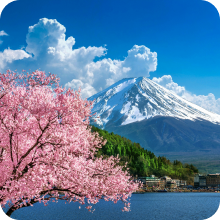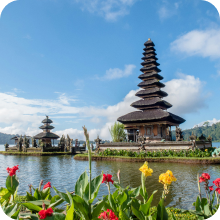Hidden Gems in Japan for Tourists: Unveil Japan’s Best Secrets
Japan is often associated with bustling cities, iconic landmarks, and vibrant culture, but beyond the neon lights of Tokyo and the historic temples of Kyoto lies a world of hidden gems just waiting to be discovered. These lesser-known destinations offer a glimpse into Japan’s rich history, stunning natural beauty, and unique local traditions, all while avoiding the crowds that flock to the more popular spots. Whether you’re a seasoned traveler or a first-time visitor, these hidden gems promise an unforgettable experience. Let’s explore some of Japan’s best-kept secrets.
Table of Contents
Takeda Castle: Japan’s Machu Picchu
Historical Significance
Nestled high in the mountains of Hyogo Prefecture, Takeda Castle is often referred to as “Japan’s Machu Picchu,” and for good reason. This ancient fortress, perched on a mountaintop, offers breathtaking views of the surrounding landscape, especially when a sea of clouds envelops the valley below. Built in the 15th century, Takeda Castle has a rich history that mirrors the rise and fall of the samurai era. Wandering through its ruins, you can almost feel the echoes of the past.
How to Get There
Reaching Takeda Castle requires a bit of effort, but the journey is well worth it. The nearest train station is JR Takeda Station, from which a short but steep hike will take you up to the castle. If hiking isn’t your thing, a shuttle bus operates during the peak seasons. The best time to visit is early in the morning when the mist often blankets the valley, creating the famous “castle in the sky” effect.
Best Time to Visit
Takeda Castle is a year-round destination, but each season offers a different experience. Spring brings cherry blossoms that contrast beautifully with the stone ruins, while autumn drapes the surrounding mountains in vibrant hues of red and orange. For photographers, the early morning mist in late autumn and winter is the perfect time to capture the castle’s ethereal beauty.
Shodoshima: The Island of Olives and Stunning Views
Exploring Olive Park
Shodoshima, one of the largest islands in the Seto Inland Sea, is known for its Mediterranean-like climate and is famously home to Japan’s olive cultivation. Olive Park, located on the island, is a must-visit for anyone interested in experiencing a slice of the Mediterranean in Japan. You can wander through groves of olive trees, sample olive oil, and even try your hand at making olive-based crafts. The park offers stunning views of the Seto Inland Sea, especially at sunset.
Kankakei Gorge
For nature lovers, Kankakei Gorge is the highlight of Shodoshima. This deep gorge, carved out by ancient volcanic activity, is one of Japan’s most scenic spots. A ropeway takes you up to the top, offering panoramic views of the dramatic cliffs and the sea beyond. The area is particularly stunning in autumn when the foliage turns vibrant shades of red, orange, and yellow.
Local Delicacies
No trip to Shodoshima would be complete without sampling the local cuisine. The island is famous for its somen noodles, which are hand-stretched and air-dried, giving them a unique texture and flavor. Shodoshima is also known for its soy sauce production, with several breweries offering tours and tastings. Don’t miss the chance to try “kankakei somen,” served in a refreshing cold broth, especially on a hot summer day.
Tottori Sand Dunes: A Desert in Japan
Unique Landscapes
When you think of Japan, deserts probably aren’t the first thing that comes to mind. Yet, the Tottori Sand Dunes, located along the Sea of Japan coast, offer a surprising and surreal experience. These vast dunes stretch over 16 kilometers and rise up to 50 meters high, creating a landscape that feels more like the Sahara than Japan. The winds constantly reshape the dunes, ensuring that no two visits are ever the same.
Activities
The Tottori Sand Dunes aren’t just for admiring from afar—they’re a playground for adventure seekers. Sandboarding down the dunes is a thrilling experience, or if you prefer something a bit more relaxed, camel rides offer a fun and unique way to explore the area. For those interested in photography, the dunes are particularly photogenic at sunrise and sunset, when the shifting light creates dramatic shadows and textures.
Nearby Attractions
While in Tottori, be sure to visit the Sand Museum, which showcases incredible sand sculptures crafted by artists from around the world. Another nearby attraction is the Uradome Coast, known for its crystal-clear waters and rugged coastline. The contrast between the soft dunes and the rocky coast offers a unique glimpse into the diverse landscapes of Japan.
Ouchi-juku: A Post Town Frozen in Time
Step Back in History
Ouchi-juku, located in Fukushima Prefecture, is a beautifully preserved post town that takes you back to the Edo period. Once a key stop on the Aizu-Nishi Kaido trade route, Ouchi-juku has retained its historical charm with rows of traditional thatched-roof houses lining its main street. The absence of power lines and modern buildings allows you to truly immerse yourself in the atmosphere of a bygone era.
Traditional Accommodations
For those who want to experience life as it was centuries ago, staying in a traditional inn in Ouchi-juku is a must. These inns offer tatami rooms, futon bedding, and meals cooked over an irori (traditional Japanese hearth). The experience is both authentic and peaceful, providing a unique window into Japan’s cultural heritage.
Must-Try Dishes
Ouchi-juku is also known for its unique cuisine. One dish not to miss is “negi-soba,” a type of soba noodle served with a long green onion, which you use in place of chopsticks. It’s a fun and delicious way to enjoy a traditional meal. Another local specialty is grilled river fish, often served with a sprinkle of salt and cooked over an open fire—simple, yet full of flavor.
Thanks for visiting our blog, are you planing to travel to Japan? Check out our eSIM Japan.

Kamikochi: The Japanese Alps’ Hidden Treasure
Pristine Nature
Kamikochi, located in the Northern Japanese Alps, is a remote mountain valley that offers some of the most stunning natural scenery in Japan. Often referred to as the crown jewel of the Japanese Alps, Kamikochi is a paradise for nature lovers, with crystal-clear rivers, lush forests, and towering peaks. The area is part of Chubu Sangaku National Park and has been carefully protected, allowing its pristine beauty to remain untouched.
Hiking Trails
Kamikochi is a hiker’s dream, with trails suitable for all levels of experience. For beginners, the trail from Taisho Pond to Kappa Bridge is a flat, easy walk that offers spectacular views of Mount Hotaka and the surrounding mountains. More experienced hikers can tackle the challenging climb up to Mount Yake, an active volcano that offers panoramic views of the valley below.
Seasonal Wonders
Kamikochi is beautiful in every season, but each offers its own unique charm. Spring brings delicate alpine flowers, while summer is perfect for escaping the heat of the city. Autumn is perhaps the most magical time to visit, with the valley ablaze in red, orange, and gold. In winter, Kamikochi is closed to the public due to heavy snowfall, but the snow-capped peaks create a breathtaking backdrop for those who can catch a glimpse from nearby areas.
Okunoshima: The Rabbit Island
History of the Island
Okunoshima, a small island in the Seto Inland Sea, is better known by its nickname—Rabbit Island. This unusual name comes from the thousands of friendly rabbits that roam freely around the island. However, Okunoshima has a darker past. During World War II, the island was used for the production of poison gas. Today, the island’s dark history is memorialized in the Poison Gas Museum, while the rabbits have become a symbol of peace and innocence.
Getting There
Visiting Okunoshima is a delightful day trip. The island is accessible by ferry from Tadanoumi Port or Omishima Island. The ferry ride is short, and once you arrive, you’ll be greeted by the island’s furry residents. Bicycles are available for rent, making it easy to explore the island at your own pace.
Interacting with the Rabbits
The main attraction of Okunoshima is, of course, the rabbits. These friendly creatures are used to humans and will happily approach you, especially if you have food. Rabbit food is available for purchase on the island, but it’s important to remember to feed them responsibly and respect their natural habitat. Interacting with the rabbits is a heartwarming experience, and the island’s serene environment makes it a perfect escape from the hustle and bustle of city life.
Before you take off make sure to check with local government of the travel status.
FAQs
What is the best time of year to visit Japan’s hidden gems?
Spring and autumn are ideal, offering mild weather and beautiful scenery.
Are these hidden gems easily accessible by public transportation?
Some are accessible by train or bus, but renting a car may provide more flexibility for certain locations.
Can I visit these hidden gems in a day trip from major cities?
Many of these spots can be visited as day trips, though some may require an overnight stay to fully enjoy.
Are these lesser-known destinations crowded?
Generally, these hidden gems see fewer tourists than popular spots, offering a more tranquil experience.
Do I need to speak Japanese to visit these hidden gems?
Basic Japanese can be helpful, but most areas have signs in English, and locals are often willing to assist travelers.















